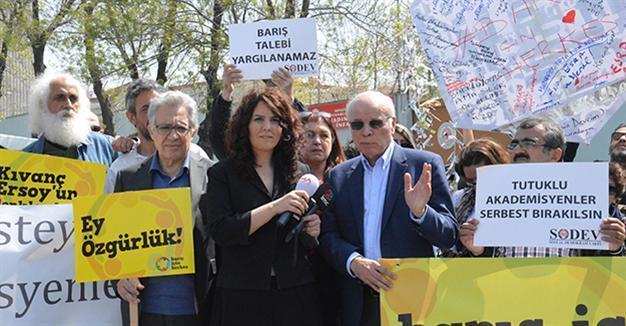Disciplinary probes against academics ‘illegitimate’: Council of State
Esra Ülkar – ANKARA

Turkey’s Council of State has issued a stay of execution of a general assembly decision by Turkey’s Higher Education Board (YÖK) prescribing the application of its own disciplinary regulations in probes against academics, rendering “illegitimate” a number of probes opened up since November 2015, experts say.
The Council of State issued a partial stay of execution regarding the Nov. 12, 2015, decisions taken at YÖK’s general assembly which said universities should launch investigations in line with the board’s disciplinary regulations.
In its ruling, the Council of State said the regulations were inapplicable after the Constitutional Court reversed a regulation which tasked YÖK with regulating disciplinary measures at universities.
“Hence, disciplinary probes and punishments that resulted from the probes launched since Nov. 12, 2015, are null and void,” a law professor from Istanbul Bilgi University, who also recently won the Global Freedom of Expression Prize from the U.S.’s prestigious Columbia University, Yaman Akdeniz, said in explaining the Council of State ruling.
Akdeniz said this would also render invalid the probes against 35 academics who signed the “Academics for Peace” petition, a plea to end military operations in Turkey’s southeast which created a political storm after President Recep Tayyip Erdoğan lashed out at the signatories.
“After the Council of State decision, we think the YÖK Disciplinary Council should issue a foreign plea and reject punishments,” Akdeniz added.
In early January, 1,128 academics from 89 different universities – including foreign scholars like Noam Chomsky, David Harvey and Immanuel Wallerstein – signed the petition titled “We won’t be a part of this crime,” which called on Ankara to end the “massacre and slaughter” in southeastern Turkey.
Universities and prosecutor’s offices across the country subsequently opened probes into a number of the 1,128 local and international academics and intellectuals who fall within the Turkish state’s jurisdiction, arguing that the petition went beyond the limits of academic freedoms.
 Turkey’s Council of State has issued a stay of execution of a general assembly decision by Turkey’s Higher Education Board (YÖK) prescribing the application of its own disciplinary regulations in probes against academics, rendering “illegitimate” a number of probes opened up since November 2015, experts say.
Turkey’s Council of State has issued a stay of execution of a general assembly decision by Turkey’s Higher Education Board (YÖK) prescribing the application of its own disciplinary regulations in probes against academics, rendering “illegitimate” a number of probes opened up since November 2015, experts say.